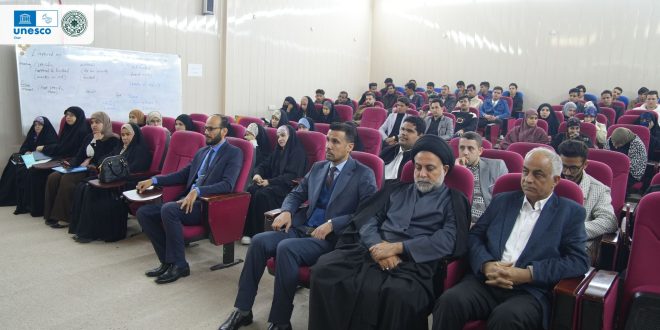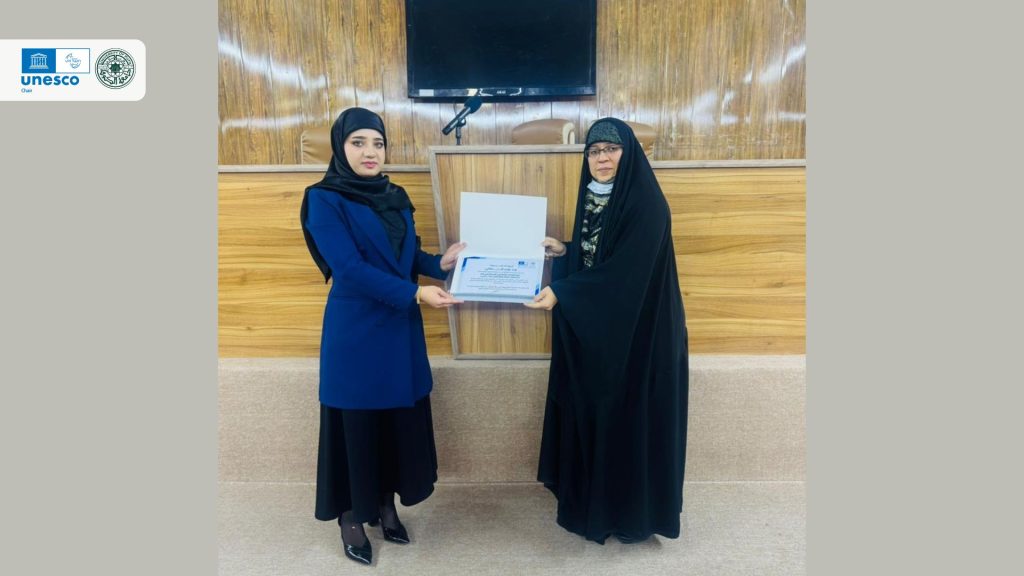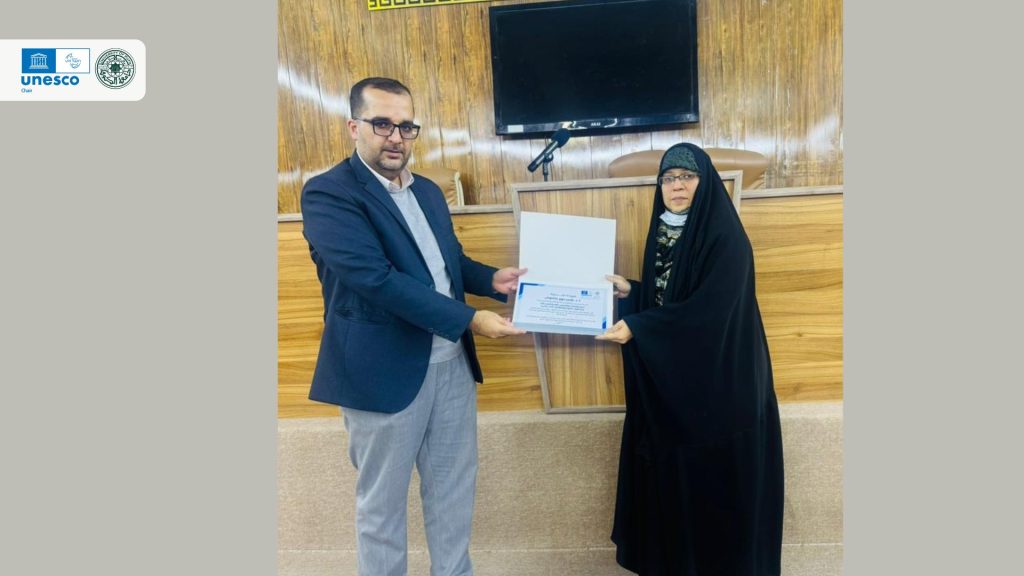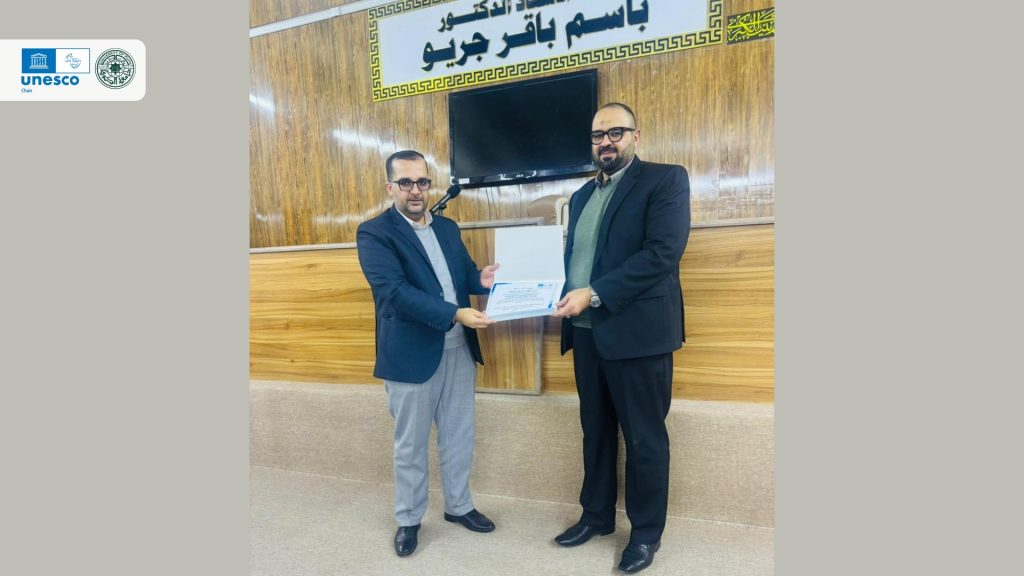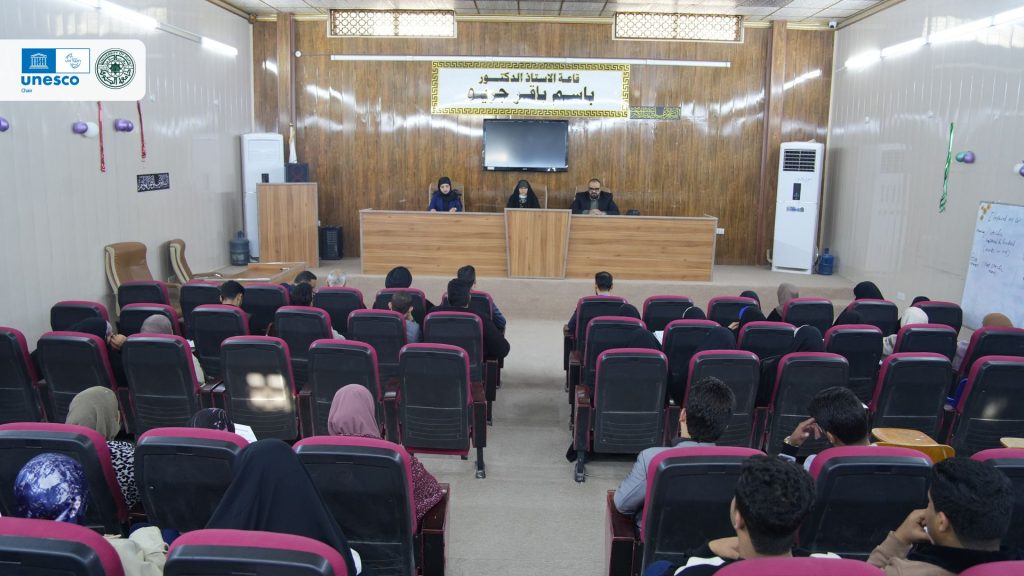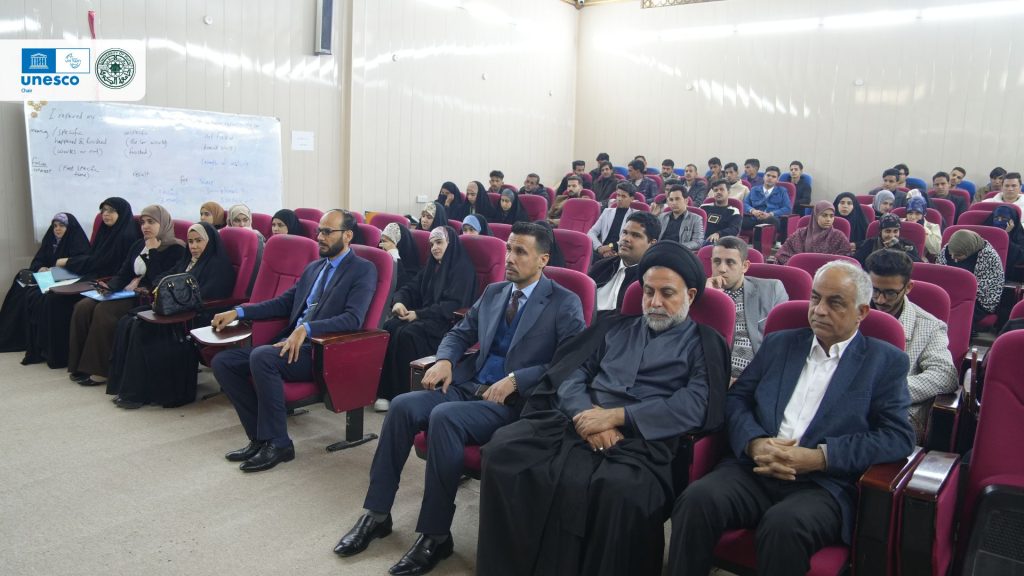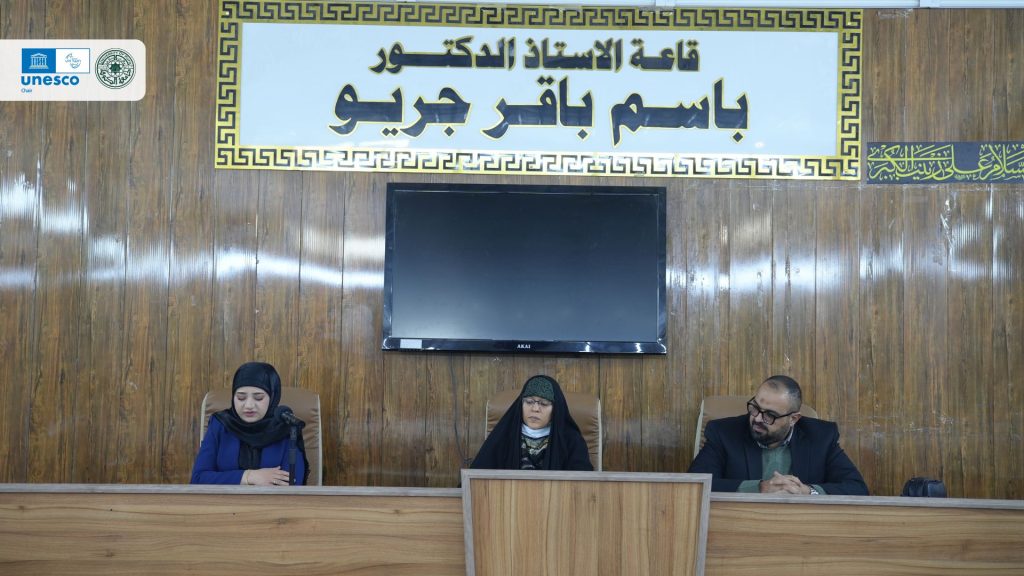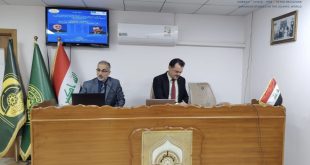In collaboration with the Department of Quranic Sciences and Islamic Education at the College of Mixed Education, University of Kufa, the UNESCO Chair held an in-person seminar titled “The Role of Islamic Scholars and Researchers in the Future of Dialogue and Peaceful Coexistence” on Thursday, December 26, 2024.
The seminar was attended by several faculty members from the Department of Quranic Sciences and a group of college students.
The seminar began with a research paper presented by Dr. Zainab Al-Rikabi, a member of the UNESCO Chair. Her paper focused on the efforts of Grand Ayatollah Sistani in promoting a culture of dialogue and coexistence with others. It highlighted key aspects of dialogue and peaceful coexistence and the practical applications of these principles in the vision of Grand Ayatollah Sistani. She emphasized that the religious authority represented by Grand Ayatollah Sistani is the first contemporary religious authority to advocate for establishing a lasting civil state based on constitutional institutions that respect rights and obligations.
The second research paper was presented by Professor Marwan Ali Hussein from the Department of Quranic Sciences. His paper shed light on the concept of peaceful coexistence and its foundations in the authentic sources of Islam, referencing historical documents that emphasize peaceful coexistence, Islamic rapprochement, and harmony.
The third research paper was delivered by Dr. Hajar Dweer, Head of the Department of Quranic Sciences. Her paper, titled Dialogue for Peace, emphasized the existence of differences and the necessity of acknowledging these differences between Muslims and Christians. She stressed the importance of agreeing on a framework to manage these differences to prevent them from turning into conflicts, noting that difference is one thing and conflict is another. This requires constructive dialogue between Muslims and Christians.
 UNESCO CHAIR For Inter-Religious Dialogue Studies in The Islamic World
UNESCO CHAIR For Inter-Religious Dialogue Studies in The Islamic World
